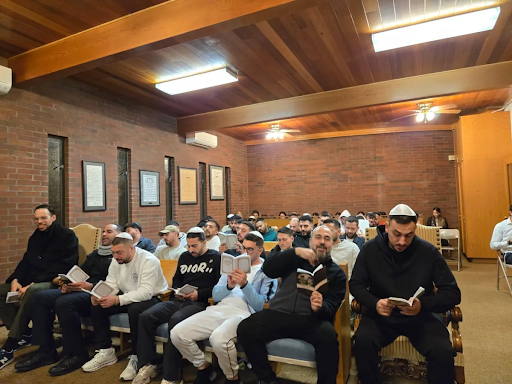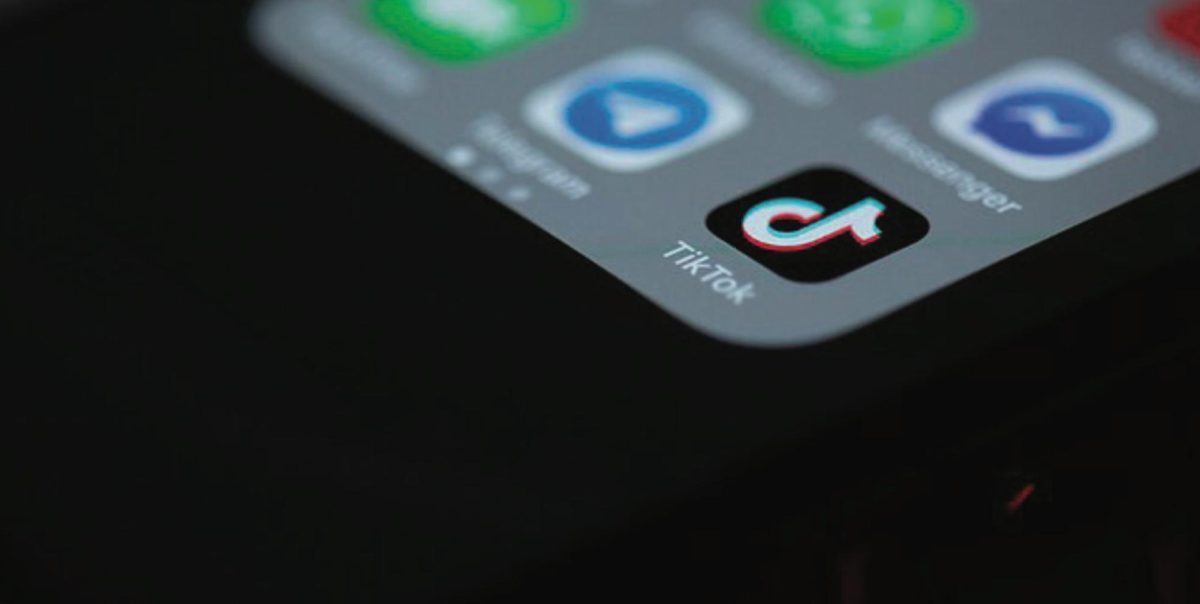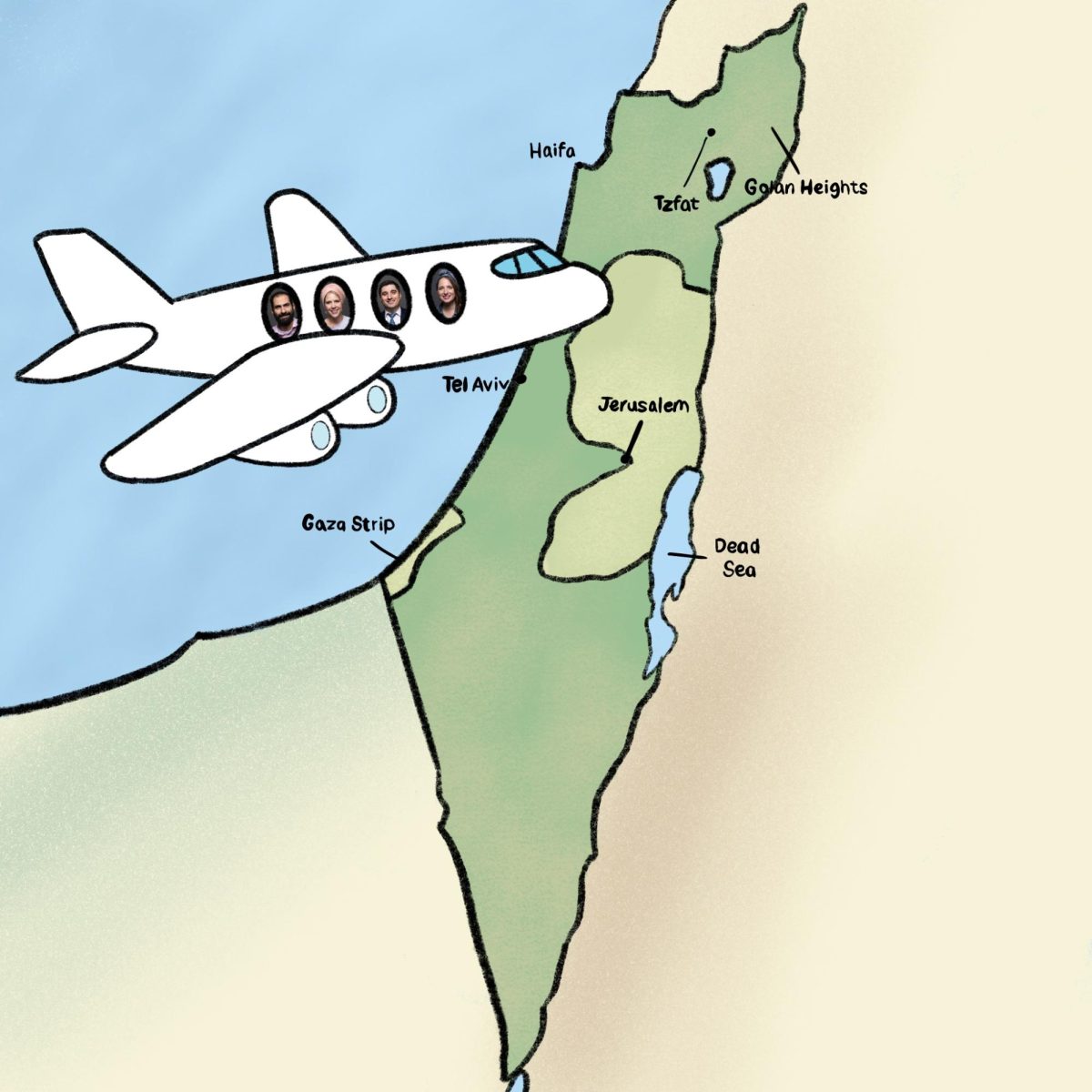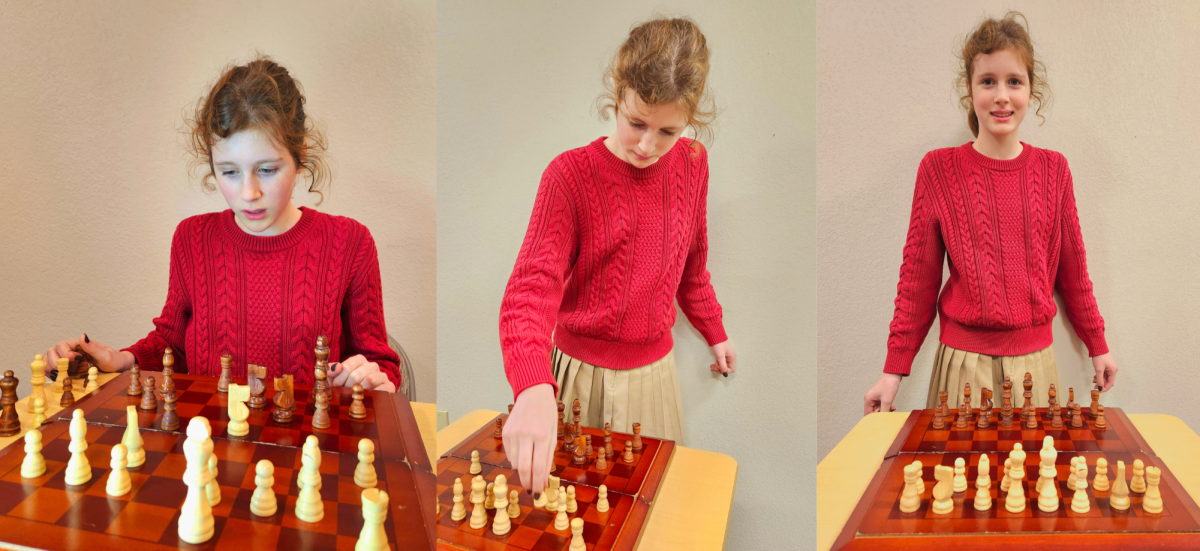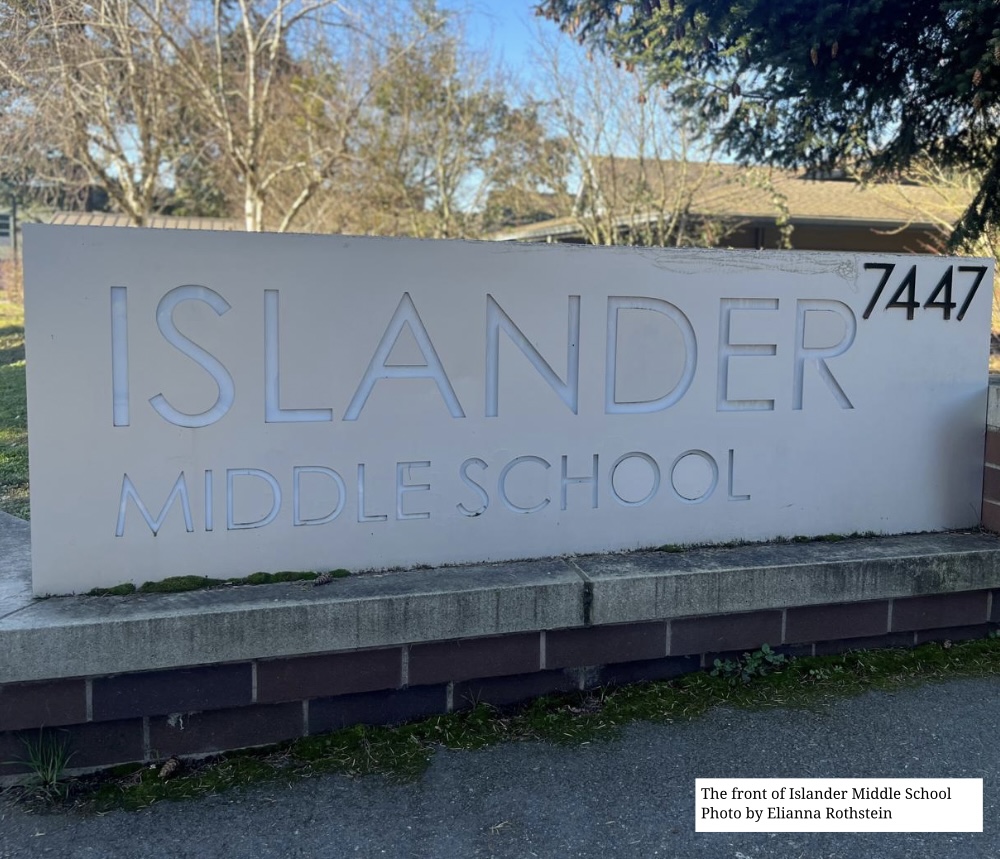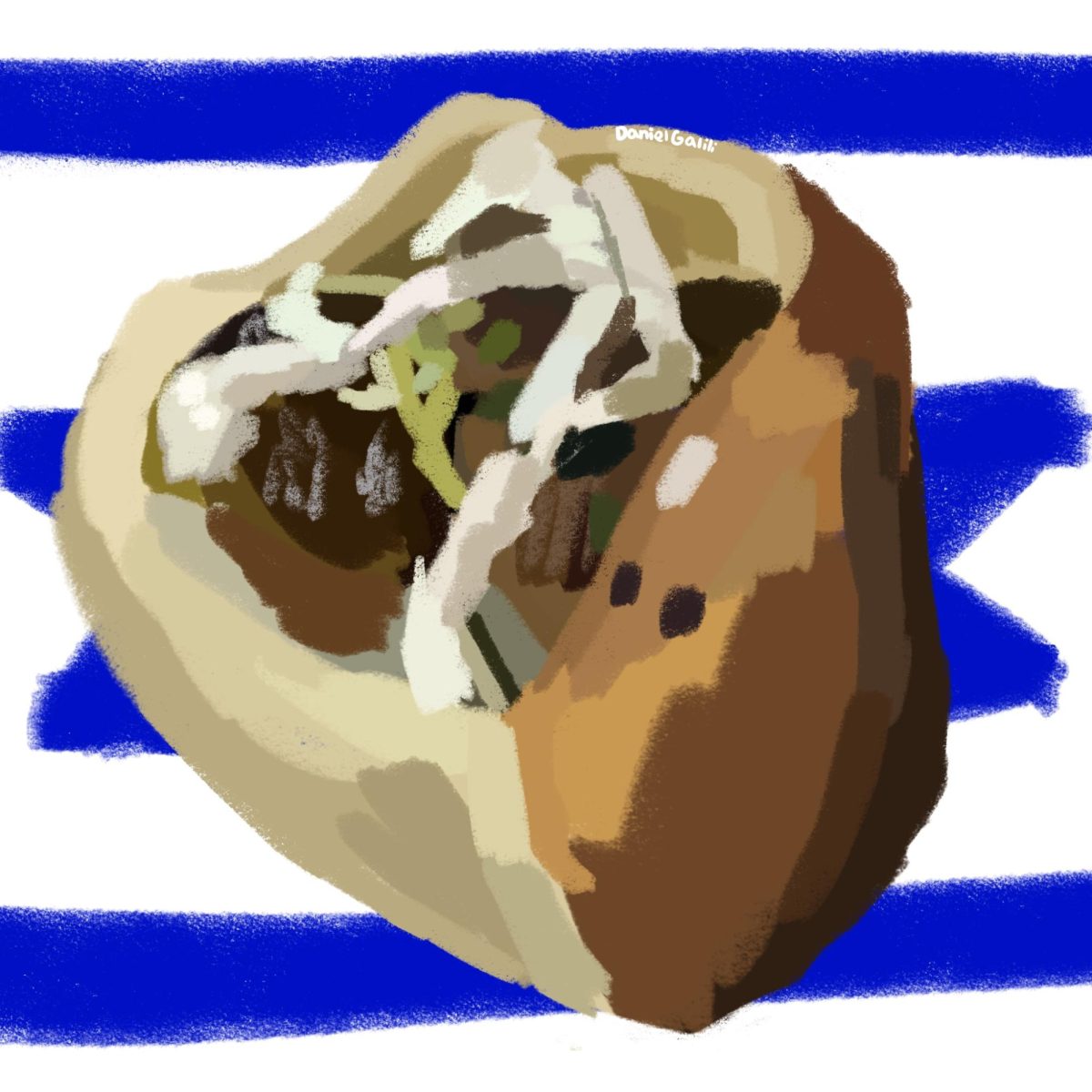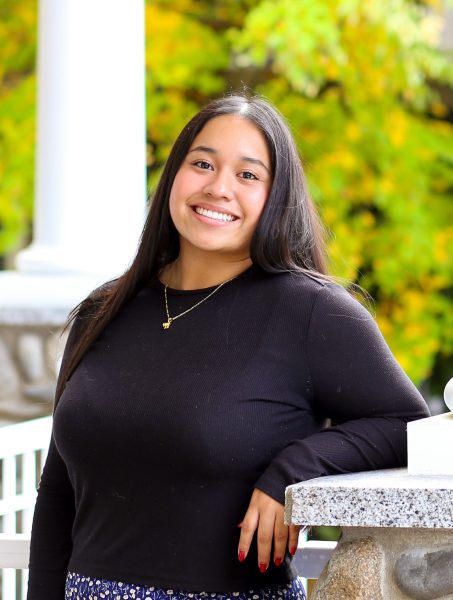On Friday nights, Israelis of all ages pack the Sephardic Bikur Holim (SBH) beit midrash (a small learning sanctuary) shoulder-to-shoulder, their voices rising together in the melodies of Kabbalat Shabbat like Lecha Dodi and Mizmor L’David.
For many in this minyan, the journey to this moment began with a simple invitation to learn. What started as small Torah study sessions on Thursdays has grown into a thriving community of approximately 80 Israelis in Seward Park, including families, young men, and women who find meaning in learning and self-growth.
“A strong community starts with connection,” said Rabbi Avraham Maimon. “From there, it grows into something truly meaningful—learning, tradition, and togetherness.
However, this story goes far beyond just SBH. It all started six years ago when Rabbi Avraham Maimon moved to Seattle from Israel to become the head rabbi at the Seattle Kollel, a community-based organization dedicated to Torah education in Seattle. When Maimon arrived in Seward Park’s Jewish community, he had one goal: to foster a strong and vibrant Israeli-Jewish community. But the road was anything but smooth.
According to Maimon, his attempts to connect with Israelis were not so successful. The Torah classes he offered didn’t take off due to a lack of interest.
“I’m very proud to say I failed for four years straight,” he said.
However, two years ago, he met one person who was open to learning, and the group started with just that individual. Maimon was willing to visit his house in Bellevue (a city east of Seward Park, about 12.5 mi away) and by the second week, three more people joined. This marked a turning point, and the group continued to grow, eventually reaching 10-15 participants.
Maimon said that his passion for Jewish education has been a goal since he was a child, his father would tell him “Avrahmi when you are gonna be older you are gonna be a rabbi and teach people that Judaism is fun.”
Historically, Israelis have been spread out across King County, living in cities and suburbs like Bellevue, Redmond, and Renton. These communities are a mix of longtime residents and recent arrivals from Israel seeking new opportunities. “It is very hard to know how many Israelis are in Washington, some say 5,000 while others say close to 30,000, I believe that there are between 12,000-15,000, but there are no real numbers,” said Maimon. In the past year, however, more of the Israelis have been moving to Seward Park to stay close to the growing community, the Kollel, and SBH. Noam Julius, a 28-year-old Israeli who moved to Seward Park from Beitar Illit, Israel, suggests that “After October 7th, many Israelis wanted to be closer to Hashem, to Israel, and each other — especially being outside of Israel. This community gave us that.”
Among them is 19-year-old Uriel Ganasia who came to the United States from Netanya, Israel, eight months ago for work. Ganasia first spent two months working in Kansas, where he had professional connections.
However, Ganasia struggled due to the lack of a Jewish community and eventually got in contact with Maimon. Through relatives, he decided to start his career in construction and move to Washington. After starting in Renton, he soon moved to Seward Park where it would be easier to keep Shabbat and be a part of a Jewish community.
“Seeing so many Jews together after not having proper Shabbatot for a while when I was in Kansas was unforgettable,” Ganasia said. “Hearing the music and tefillah [prayers] reminded me of home like I was back in Israel.”
Julius, who moved to Seattle to join family members that had relocated to America during his Israeli army service, first connected with Rabbi Maimon through a friend while searching for Haggadot (Jewish texts that outline the order of the Passover Seder). This connection led Julius and his family to begin attending Rabbi Maimon’s classes and eventually moved to Seward Park from Bothell to be closer to the community and engage more in religious life.
“Rabbi Maimon will go and do the lessons even if there is one person or if there are 20 people,” Julius said. He emphasized that the community’s strength lies in its focus on education and connection. “Everything is based and surrounded by Torah learning.”
Din Amir, another member of the Israeli community at SBH, shares a similar journey of transformation after moving to Seattle from Lod, Israel. Amir, 25, came to the US ten months ago, initially for a change and work opportunity. Like Ganasia, Amir did not live in Seward Park at first. Four months ago, after a family members passing, Amir moved to Seward Park from Bellevue to be closer to Rabbi Maimon and reconnect with his Judaism.
“I needed a place, a Jewish place, not necessarily Israeli, but somewhere to feel at home,” Amir explained. At first, Amir’s connections to the community began through its social scene. “Honestly, I came to the Torah classes for the barbeques and the people, but slowly, my relationship with the community and my religiousness deepened,” he said.
With Rabbi Maimon’s help and encouragement, Amir began wearing tzitzit, replaced his old tefillin with brand new ones, and got into learning and understanding his tefillah more deeply.
“Shabbat here is something special,” Amir shared. “Everyone – Sephardic, Ashkenazi, Israeli, all come together for tefillah, kiddush, and meals. By Monday, I’m already waiting for Shabbat.”
Now, the Thursday night classes have expanded into a variety of daily programs, including Talmud, Halacha, parashah, one-on-one learning sessions, women’s classes, Shabbat minyans, and Shabbat meals—all organized by Rabbi Maimon and the community group, Ahavat Yisrael.
The group maintains a website and social media platforms to keep the community updated on programs, Shabbat times, and other announcements. Julius and his family played a key role in building the website and used their construction skills to help update the Seattle Kollel, where many of these programs take place. Other community members contribute by hosting programs and events, ensuring the community continues to thrive. Communication is streamlined through a WhatsApp chat that now includes over 112 members.
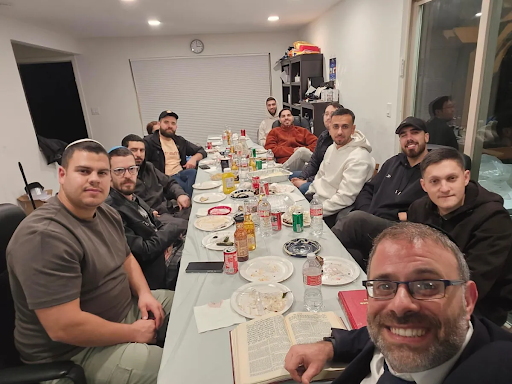
According to Julius, most community members are young professionals. However, some families actively participate in the programs. Some community members have expressed a desire to settle in Seward Park long-term, while others view their time here as temporary, intending to return to Israel once their careers take off. Despite these differing plans, everyone agrees that the community will continue to grow and flourish.
Although the Israeli community has its own unique identity and story within Seward Park, they regularly engage with other members of the Seattle Kollel and SBH through shared Shabbat kiddushim, meals, and even NYHS basketball games, fostering a sense of unity and collaboration.
Rabbi Maimon’s goal with his weekly Torah sessions was not to get local Israelis to adopt a more religious lifestyle. Instead, his focus was on creating opportunities for learning and connection. “He never forces anything on you but helps you find the blessings in Judaism,” Amir said. “Because of this place, I’ve earned the real feeling of Shabbat.”
“Any community based on tradition alone will fail. Success comes when people understand why — when we educate ourselves, our kids, and our community. If we don’t understand why we’re doing what we’re doing, it won’t last,” said Maimon. “What I was able to do with Israelis was help them find the desire to learn and understand their actions. The minyan is just a result of this understanding. People keep Shabbat and put on tefillin because they understand, and that is how we succeed.”

